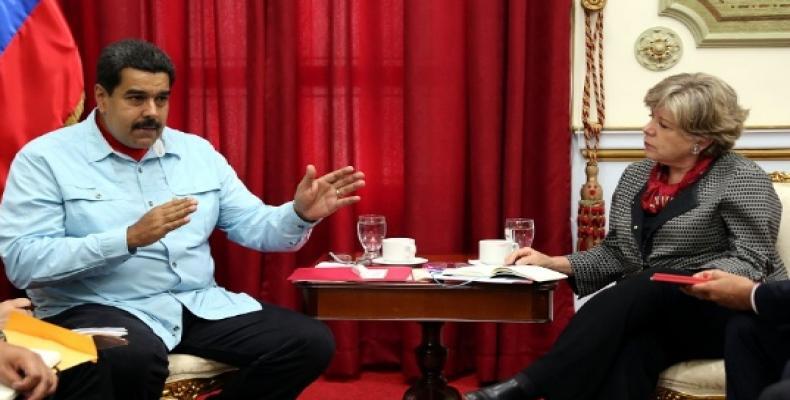Caracas, March 27 (teleSUR-RHC) Alicia Barcena, executive secretary of the U.N. Economic Commission for Latin America and the Caribbean (ECLAC), praised on Thursday Venezuela´s efforts to eradicate poverty in the country.
Barcena, who was in Venezuela at the invitation of President Nicolas Maduro, visited working class communities in Caracas to familiarize herself with the social programs of the Venezuelan government.
The ECLAC chief visited a government-run services hub in the community of La Vega, where several social programs are delivered directly to people in need. The hub includes a 24-hour medical clinic, as well as a nutrition center opened in November. The hub is one of 1,500 set to be built throughout the country in order to increase the accessibility of social programs. The hubs are part of the National Campaign for the Elimination of Poverty announced in June of last year which aims to eliminate extreme poverty by 2019.
ECLAC has proposed the region to work on the elimination of poverty in the region by 2020. “What you are doing here, the concept going out into the (low-income) neighborhoods, to the places where there is the most poverty, it is an excellent proposal that should be examined by other countries,” said Barcena.
Barcena also visited some of the new social housing built by the government. The construction of homes has been a major priority of the government, which has built more than 670,000 new homes since 2010. The government expects to build 400,000 more this year alone.
She lauded Venezuela's commitment to social expenditures despite the external pressures placed on the country with the drop of oil prices.
Barcena also recognized Venezuela's efforts to address poverty and inequality at an international level through initiatives such as Petrocaribe, which offers preferential terms for Venezuelan oil to member states. “You can count on ECLAC, Mr. President, because we are interested in the work Venezuela did with Petrocaribe as a new way to look at south-south cooperation, one that is in solidarity, between equals, and an exchange not only of money but of experience and capabilities,” said Barcena.


